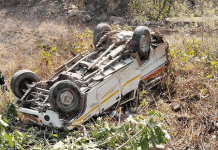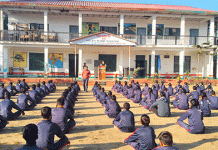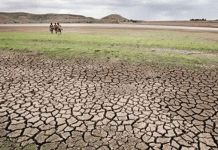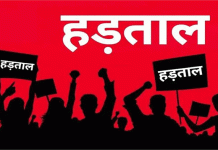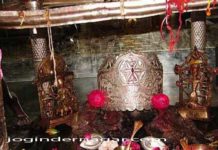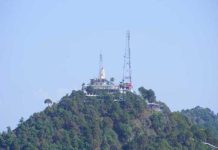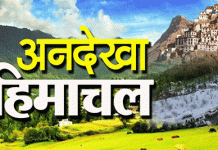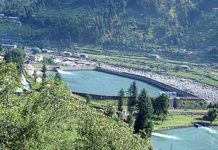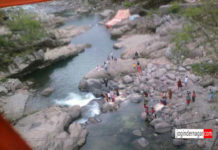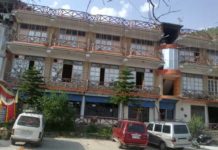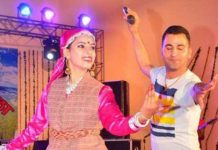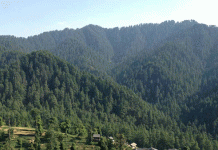Malana is an ancient Indian village in the state of Himachal Pradesh. This solitary village in the Malana Nala, a side valley of the Parvati Valley to the north-east of Kullu Valley, is isolated from the rest of the world. The majestic peaks of Chandrakhani and Deotibba shadow the village. It is situated on a remote plateau by the side of the torrential Malana river, at a height of 3,029 metres (9,938 ft) above sea level. Unaffected by modern civilisation, Malana has its own lifestyle and social structure. People are strict in following their customs. Malana has been the subject of various documentaries, including Malana: Globalization of a Himalayan Village, and Malana, A Lost Identity. Malana is a small village of about 500 families.
History
Malana has a history and it goes back to Jamlu rishi (sage) who inhabited this place and made rules and regulations. It is one of the oldest democracies of the world with a well organized parliamentary system. All of this is guided by the their devta Jamlu rishi. Although Jamlu is currently identified with a sage from the Puranas, this is a relatively recent development. Jamlu is believed to have been worshipped in pre-Aryan times. Penelope Chetwood recounts a tale about an orthodox Brahmin priest, who visited Malana, and tried to educate the locals about the pedigree of their god, and what hereafter befell the hapless priest.
Jamlu Devta is the rustic form of the great saint Rishi Jamdagni. As the legend prevails Jamdagni was searching for a most conducive place for meditation. He was carrying eighteen images of the gods in a basket, symbolic of all the gods of the world, the wild wind scattered these images throughout the Beas valley. Wherever these images fell they became the gods of the locality. Jamdagni Rishi came to Malana and found the locality quite suitable for his meditation. So he stayed there for a while before proceeding further. Slowly and gradually the people from far and wide especially from the high ranges of the Himalayas came there to settle.
Malana is considered to be one of the first democracies in the world. No interference of the outsiders is entertained here and all disputes of the village are settled between themselves. According to tradition, the residents of Malana are the scion of Aryans, and they acquired their independence during the Mughal reign when the Emperor Akbar walked to the village in order to cure an ailment that he was afflicted with after having been successfully cured he put out an edict stating that all the inhabitants of the valley would never be required to pay tax. An alternative tradition suggests that Malana was founded by remnants of Alexander the Great’s Army.
Culture and lifestyle
The most astonishing fact of the village is its democratic setup. Malana society elects the members to administer the locality in peace. There are two houses of the elected members, the lower and the upper house. The lower house is named as Kanishthang while the upper one is Jeyshthang. Jeyshthang has eleven members out of which three are permanent members and eight are temporary ones. These eight members are elected out of four wards called Chug. Each Chug is again divided into two parts, each part is called Chhuddi. The four wards are Thamyani, Nagvani, Palchani and Durani. So two elders are elected from each ward, i.e. one from each Chhuddi of every ward. These elders are known as Jathera.
Three permanent members include Karmishth, i.e. the chief of the village and the main administrator. In fact, he is the chief executor of the will of the god. He is generally elected from Thamyani ward. Second is the priest known as Pujari of the Jamlu Devta. He is elected from Nagvani ward and the main function of the pujari is to perform the rituals and religious ceremonies, and to worship the god as well as to attend the religious ceremonies performed in the locality. The third permanent member is Our. Our is always elected by the Devta himself. It used to happen at some special occasions of religious convention when the soul of Devta entered the body of any person of the locality. He will shiver and profess the prophecy beyond human existence and powers. He will be elected as the Our.
Gur is the communicator of god’s will. They are the three permanent members of the upper house and serve the Devta and the upper house throughout their life. The eight temporary members may be elected. When there is death of a member or anyone of them resigns, they all have to quit the house and the elections are declared in which the members of the two houses participate. Only the mature persons of the referred Chugs participate in the election.
It is although a real fact that Malanis through this council perform a political system of direct democracy very similar to that of ancient Greece. Thus Malana has been named the Athens of Himalayas Malanis (the inhabitants of Malana) admire their culture, customs and religious beliefs. They generally do not like to change though some traces of modernization are visible.
How To Reach
By Train The nearest rail head is joginder nagar which is 140 km away.
By Air The nearest airport is Bhunter. Archana Airways and Jagson Airways operate daily flights from Delhi to Kullu & Shimla to Kullu.
By Road The Rohtang pass is 55 KM north of Manali on National Highway No 21. Regular buses, coaches and taxies play from Delhi and Chandigarh.







